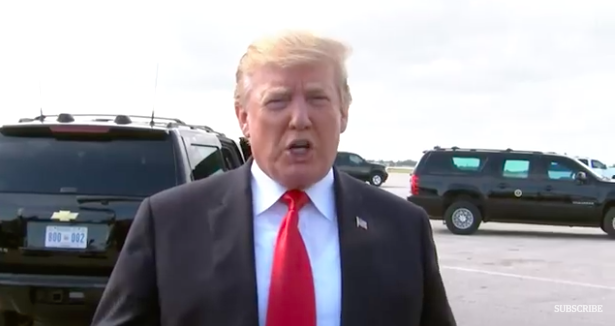I think a lot of us feel the same way this week that David Campos does. From his Facebook page as the results were showing a likely (now certain) Biden victory:

Believe you me, that is a big relief and I’m certainly thrilled to think of the prospect of that victory. That said, I must be honest that there is a lot of heartbreak in knowing that this was even this close. Trump has been a disaster on so many fronts but especially when it comes to the open racism, xenophobia, sexism, and all the other hatred he has fostered. The guy put kids in cages, banned Muslims from entering the country, went after the Transgender Community, used tear gas on peaceful protesters, stoked racism against Asian Americans over the Coronavirus, and lent legitimacy to White Supremacy. And on top of all that, more than 238,000 people have died of COVID-19 because of his incompetence and negligence.
It is clear now that but for the pandemic, Trump would have been re-elected, in large part because his message of division and hate resonates with a significant segment of the population.
It’s nice to have the political victory that we are likely to get, but our country needed a moral victory as well. We needed a clear repudiation of the racism, misogyny, xenophobia and hatred. I don’t think this election gave us that clear repudiation, not when it’s this close.
I am still shaking my head, too: Biden and Harris won, but narrowly. How could so many people vote for Donald Trump?
I can think of three reasons, two of which are pretty obvious. And one is the fault of the Democratic Party as much as the GOP.
First, racism. It’s always been there. As Jamelle Bouie notes in the NYT, Trump is not an aberration. Ronald Reagan used not-so-subtle racist language to get elected. So did George W. Bush. So did Bill Clinton. What Trump has done differently is made open, active, racism part of the culture of his base. And sadly, in a lot of places, it worked.

Then: Paranoia and distrust of government. There are always been people succeptible to (or just fascinated by) conspiracy theories and general anti-science quackery; they used to be mostly isolated and limited in their political relevance. Now they have online echo chambers that reinforce and expand their world views.
There have always been Americans who were suspicious of government and government power; some of them helped write the Constitution. But for the first half of the 20th Century, most people saw government as essentially a good thing; government got us out of the Great Depression, won World War II, and created the greatest middle-class prosperity in US history.
Then came Vietnam, the War on Drugs, COINTELPRO, Watergate … and my whole generation grew up seeing government as the enemy. Some still do.
Combine that with the longstanding American distrust of power, and you have a huge number of people who don’t think more government is going to help them.
Rose Aguilar on Facebook:
Trump has received 66,673,111 votes so far. That’s more than he got in 2016. WHY?
Here’s what I’ve heard/read from Trump voters this morning:
Vote for Biden and your freedoms will be taken away.
My family came to this country to be free. We left a socialist country. We don’t want to live in one. (NPR airs this nonsense without challenging the person)
This is pure idiocy. I rarely hear people say: “I support tax cuts for the ultra wealthy, family separation, the closure of clinics that provide abortions, a repeal of the ACA, and the continued exploitation of the planet. I want four more years of that.” That is what they are voting for.
Instead, I hear pure nonsense. We need to have an honest conversation about this.
Trump has weaponized “socialism.” It sounds to his fans like “some bureaucrat telling me what to do” instead of “free education and health care for my kids.”
The good news is that people under 30 don’t buy that. So there is hope for the future.
But there is also the element that the Democratic Party leadership has to accept part of the blame for. Many Trump voters were driven by an intense hatred of the “elites,” which the GOP has now branded the “liberal elites.”
Trump, in his speech Thursday night, claimed that he had “big media, big tech, and big money” against him and “farmers and police officers” on his side.
Of course, the real “elites” in our society are not, for the most part, “liberal:” They’re the likes of the Koch Brothers, billionaire right-wingers who have financed the modern Republican Party (oh, and Trump himself.) But what the Trump voters see are the tech and finance billionaires who get richer while the rest of us suffer.
I still think one of the biggest problems of the Hillary Clinton campaign was her connection with Goldman Sachs and Big Finance. To Trumpers (and potential Trumpers) the folks who work at Goldman Sachs do very little of any substance except move money around – but they make great salaries, they send their kids to private schools and the Ivy League, and when their business fails, the government bails them out.
The corner barber shop or small contractor who runs out of money is broke and unemployed. The big bankers get billions in taxpayer money to save their elite salaries; they never miss a meal or have to worry about making the rent or mortgage.
As the Democratic Party has befriended Big Tech (talk about elites!), Big Real Estate, and Wall Street, its old working-class base has crumbled.
In 1960, 20 percent of the members of Congress, many of them Democrats, had no four-year college degree. Today, that number is zero. Prior to Biden, you had to go back quite a while to find a Democratic candidate for president who didn’t have a degree from Yale or Harvard. (The last one was Walter Mondale in 1984; he went to the University of Minnesota. Jimmy Carter was educated at the Naval Academy.)
Trump, of course, has always been part of the elite – and he, of course, has been giving tax breaks to all of them. But he’s made a political career of attacking the “liberals” who come from the East and West Coast (as he does). See, the word “liberal” doesn’t refer to a political philosophy in Trumpism; it refers to someone who has never picked up a hammer or shovel or mop on the job, who is condescending to the hired help, and who doesn’t get the economic pain so many people are feeling.
And that pain is as much the fault of Democrats as Republicans.
Since Ronald Reagan was elected in 1980, no Democratic president has done anything to significantly raise taxes on corporations or the very rich. I remember interviewing Al Gore during his presidential campaign, and asking him about economic inequality and taxation of the one percent; he told me he thought “taxes are high enough already.” I never got either Clinton to address the issue, although I tried.
When I asked Kamala Harris, back in the spring when she was a candidate for president, what she thought about Elizabeth Warren’s idea of a wealth tax, she said “I think Elizabeth is onto something” – but it never became part of her platform, and it’s not a part of the Biden-Harris platform today.
High taxes on income and wealth are not just a way to raise money (although a very modest wealth tax on the 1 percent in the US would pay for free health care and college education for everyone in the nation). It’s about reducing economic inequality. If 80 percent of marginal income over $1 million a year goes to the government, there aren’t as many rich elites; the bankers don’t have all that much more money than the carpenters and janitors and service workers. The resentment of the elites is entirely legitimate (if grossly misplaced) and a function of our failure to take economic inequality seriously.
Thomas Picketty, who is the most important economist of our time, warned us about this in his groundbreaking book. Without serious, progressive taxes on wealth and income, he says, economic inequality will grow to the point where society will start to break down. Capitalism in the 21st Century is a recipe for exactly what we are seeing in the United States this week: The rise of right-wing populist demagoguery.
It’s happened before in the world, and it will happen again.
And that discussion hasn’t even started in the mainstream of the Democratic Party.






